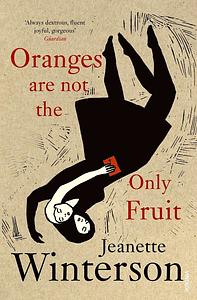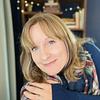You need to sign in or sign up before continuing.
Take a photo of a barcode or cover
So strange. So cool. Again, one that I would read again, if only because I don't feel like I got it enough the first time around. Unfair that I should have read so many books before I was prepared to really get them... and that I have no time to reread books when there are so many others that I want to read for the first time. Religion, lesbianism, postmodernism - where else do you get that combination?
It fell short on the portrayal of emotions, but apart from that, this was just great. A novel quite unlike any other I read, and I liked the view it gave on growing up as a child in a strictly christian (I refuse to say 'religious' -I disapprove of the tendency in the English language to synonymise religious and Religion with christian and Christianity) environment that seems so secure until their doctrines turn against you. And the language was just beautiful. There was so much philosophy and mythology going on, and that's my jam. The whole of the Deuteronomy chapter was like something you could find in my Philosophical Reflections notebook. And very quotable.
5 stars literary merit
3 stars enjoyability
2 stars transportation
Exceedingly clever and insightful, but I spent the whole book thinking "oh! that was so clever!" and "oh! that was so insightful!" rather than being swept into a story. Can't help but wonder if I would have enjoyed it more if I had approached it like a book of philosophy or poetry or short stories instead of looking for an absorbing narrative.
3 stars enjoyability
2 stars transportation
Exceedingly clever and insightful, but I spent the whole book thinking "oh! that was so clever!" and "oh! that was so insightful!" rather than being swept into a story. Can't help but wonder if I would have enjoyed it more if I had approached it like a book of philosophy or poetry or short stories instead of looking for an absorbing narrative.
Oranges Are Not the Only Fruit relate le cheminement d'une jeune fille qui, ayant grandit dans la religion, découvre que ce monde n'est peut-être plus fait pour elle. Le livre est donc très marqué par la religion et la première partie n'est que l'enfance de Jeanette à l'église. Ça ne m'a pas dérangée parce que le style de l'autrice est très fluide, donc le livre est facile à lire même si le sujet n'est pas accrocheur.
J'ai apprécié ma lecture, mais j'aurais aimé sentir une plus grande émancipation de la part du personnage. Certes, elle chemine et finit par être davantage maître de ses choix, mais j'aurais voulu plus d'affirmation de sa part. C'est peut-être trop idéaliste de ma part, je ne sais pas, mais bon. Un livre intéressant malgré tout.
J'ai apprécié ma lecture, mais j'aurais aimé sentir une plus grande émancipation de la part du personnage. Certes, elle chemine et finit par être davantage maître de ses choix, mais j'aurais voulu plus d'affirmation de sa part. C'est peut-être trop idéaliste de ma part, je ne sais pas, mais bon. Un livre intéressant malgré tout.
So I decided that 2013 was the year I would read 100 books.
I tried a target of 50 last year but got stuck in Ulysses for about 6 months, ended up reading it about 3 times. So we’ll see how it goes.
I generally have 3 on the go at once, one actual (bedside), one digital (on phone in pocket), one audio (running and in car).
So this is my first.
I should have read it years ago and ended up reading it through twice, which isn’t a good start to the whole 2 books a week thing.
You should read it too.
I tried a target of 50 last year but got stuck in Ulysses for about 6 months, ended up reading it about 3 times. So we’ll see how it goes.
I generally have 3 on the go at once, one actual (bedside), one digital (on phone in pocket), one audio (running and in car).
So this is my first.
I should have read it years ago and ended up reading it through twice, which isn’t a good start to the whole 2 books a week thing.
You should read it too.
Oranges is one of those books that I wanted to like. It promised excitement: coming of age, religious issues and a girl discovering that she is a lesbian would be awesome to read about, wouldn’t it? Sounds like great potential for conflict between the protagonist Jeanette, her ultra-religious fanatic mother and the religious, prejudiced and narrow-minded community they live in.
The story did not work well for me, though. The protagonist was maybe a little too strange, kind of incomprehensible, and at least not always in the range of emotions I could relate to. She had something mechanistic in her way of thinking.
Then again, maybe it was because the several interludes that were probably supposed to explain some of Jeanette’s way of thinking and development did not serve well to explain what she felt. I don’t mind abstract ideas and concepts and parables, but the short episodes of Arthurian legends just did not help me in understanding her, and I found them slightly confusing, if not arbitrary at times.
I think the protagonist’s mother was actually the most remarkable character of the book, because she was consistent in her activities and her fanatism for much of the plot. All in all, the themes of the book are only dealt with superficially. Whether it is the development of the main character (from age 9 to 16!), the conflict between mother and gay daughter, prejudices, hatred and fear based on religious grounds, none of that was dealt with in any deep form and I felt more like watching from the outside, but in a detached way, held outside against my will. Stories that deal with the coming of age of lgbtq youths are what we do need, but for me this one is maybe not the best among them.
2 stars (one for the character of Jeanette’s mother, one for hinting at a few of the problems lgbtq youths can face).
The story did not work well for me, though. The protagonist was maybe a little too strange, kind of incomprehensible, and at least not always in the range of emotions I could relate to. She had something mechanistic in her way of thinking.
Then again, maybe it was because the several interludes that were probably supposed to explain some of Jeanette’s way of thinking and development did not serve well to explain what she felt. I don’t mind abstract ideas and concepts and parables, but the short episodes of Arthurian legends just did not help me in understanding her, and I found them slightly confusing, if not arbitrary at times.
I think the protagonist’s mother was actually the most remarkable character of the book, because she was consistent in her activities and her fanatism for much of the plot. All in all, the themes of the book are only dealt with superficially. Whether it is the development of the main character (from age 9 to 16!), the conflict between mother and gay daughter, prejudices, hatred and fear based on religious grounds, none of that was dealt with in any deep form and I felt more like watching from the outside, but in a detached way, held outside against my will. Stories that deal with the coming of age of lgbtq youths are what we do need, but for me this one is maybe not the best among them.
2 stars (one for the character of Jeanette’s mother, one for hinting at a few of the problems lgbtq youths can face).
I came to this book having enjoyed [b:Why Be Happy When You Could Be Normal?|11395597|Why Be Happy When You Could Be Normal?|Jeanette Winterson|https://i.gr-assets.com/images/S/compressed.photo.goodreads.com/books/1320512373l/11395597._SY75_.jpg|16327957] and loved [b:Frankissstein: A Love Story|42123790|Frankissstein A Love Story|Jeanette Winterson|https://i.gr-assets.com/images/S/compressed.photo.goodreads.com/books/1547329058l/42123790._SY75_.jpg|65720818] and... I felt more mixed on this one. A lot of it...felt really dull and a bit of a slog to get through, unfortunately. And her upbringing is challenging, which is interesting... and is also hard for the reader to get through (or at least it was for this reader).
emotional
reflective
medium-paced
Plot or Character Driven:
Character
Strong character development:
Yes
Loveable characters:
Complicated
Diverse cast of characters:
Complicated
Flaws of characters a main focus:
Yes
I have sort of lost patience these days with these alternating chapter devices used to frame the narrative in some way - maybe I was over it after THE MAP OF SALT AND STARS, but here here it is again, and this time, bleh. Here we have the story of Jeanette, a child and then teenager being raised by fundamentalist Christians who later explores her homosexuality. It's interspersed with mythic tales about Jesus Christ and Sir Perceval from the Knights of the Round Table, which is meant to symbolize that she's on a quest of her own for acceptance despite her difference and rejection of the dominant ideology of her upbringing. I wanted to hear her story, but honestly would have rather she'd omitted the bits about Sir Perceval, et al. It just distracted me, but I guess that's how you get your book to be studied in college courses?
The themes I most appreciated are those about never trusting the storyteller - she reminds us a few times that "(v)ery often history is a means of denying the past" - as well as the hypocrisy of modern religion and the pressures of conformity. Nicely done, Ms. Winterson.
I'm glad I read it, particularly in context of my self-imposed project to read more by writers offering different points of view. Written in 1985, it's a quintessential queer coming-of-age novel (or memoir? I think?) and I think Jeanette Winterson is right, as she says on her website, that it's "for anyone interested in what happens at the frontiers of common-sense."
Format: NYPL e-book, via Kindle/Libby
Read for:
2020 Reading Women Challenge Prompt 23 - By an LGBTQ+ author
2020 POPSUGAR Reading Challenge Prompt 6 - A bildungsroman
2020 POPSUGAR Summer Reading Challenge Prompt 5 - A book about an LGBTQ+ protagonist
The themes I most appreciated are those about never trusting the storyteller - she reminds us a few times that "(v)ery often history is a means of denying the past" - as well as the hypocrisy of modern religion and the pressures of conformity. Nicely done, Ms. Winterson.
I'm glad I read it, particularly in context of my self-imposed project to read more by writers offering different points of view. Written in 1985, it's a quintessential queer coming-of-age novel (or memoir? I think?) and I think Jeanette Winterson is right, as she says on her website, that it's "for anyone interested in what happens at the frontiers of common-sense."
Format: NYPL e-book, via Kindle/Libby
Read for:
2020 Reading Women Challenge Prompt 23 - By an LGBTQ+ author
2020 POPSUGAR Reading Challenge Prompt 6 - A bildungsroman
2020 POPSUGAR Summer Reading Challenge Prompt 5 - A book about an LGBTQ+ protagonist
Pročitala sam par jako lijepih misli odnosno rečenica o različitim životnim temama. Ovo je, bez sumnje, jedno dosta kvalitetno književno djelo koje govori o odrastanju, traženju sopstvenog puta koji se razmimoilazi od utabanih staza okoline. Stil pisanja je također zanimljiv, ali ja se nikako nisam uspjela povezati sa likovima. Iako sam dala samo 3 zvjezdice (bila sam iskrene prema sebi, nisam uživala u ovom romanu!) preporučujem čitanje svima koji vole sociološke teme a naročito one koje govore o mladim osobama u sukobu sa učmalom, izuzetno konzervativnom sredinom u kojoj je sve što je drugačije automatski satanizirano, osuđeno i odbačeno.






